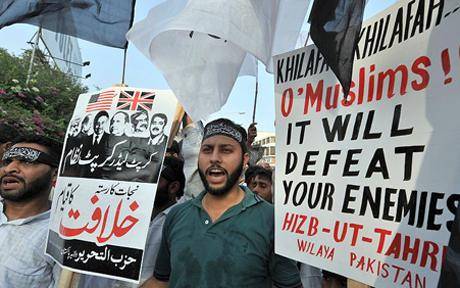Among the adventures of Sinbad is the sailor’s fabled encounter with the old man of the sea
According to the tale, during his fifth voyage, Sinbad is stranded on a desert island after a violent shipwreck destroys his vessel and crew. There he encounters a seemingly benign old man who tricks Sinbad into letting him ride on his back to reach the other side of the island. When they arrive, Sinbad goes to let the old man down but instead of climbing off, the man tightens his grip. From here he forces Sinbad to transport him from place to place, clinging on as hard as he can every time the sailor attempts to break free. Sinbad is eventually able to escape after he manages to loosen the old man’s grip by getting him drunk on wine.
The story – a potent allegory against the dangers of putting people or indeed beliefs and ideas on pedestals from where they are able to perpetuate a system of tyranny – bears strong comparison to Pakistan and its willfully indulgent alliance with the forces of the religious right.
It has become the case that for decades now Islamic parties and organizations have played a fundamental role in shaping the national narrative by forcing the political classes to kowtow to their will.
The most recent example of religious groups trying to exert their influence over lawmakers is the furor over the Punjab Assembly’s decision to pass a women’s protection act. The bill, which was finally signed into law on March 1, criminalizes all forms of violence against women as well as mandating the creation of a toll-free hotline to report abuse among other measures.
Not content with merely registering their objections, all the main conservative players including Islamic political parties like the Jamaat-i-Islami and Jamiat-i-Ulema Islam have at one point or another threatened to take to the streets unless the legislation is rescinded. The way they see it, the bill is both un-Islamic and part of a concerted effort by western powers to undermine the traditions and way of life of Pakistan, therefore, whether the electorate want it or not, it cannot be allowed to succeed.
Further weighing in to the controversy has been the Council of Islamic Ideology (CII), a rather sinister advisory body whose primary purpose is to ensure that the laws of the country comply with the Sharia.
Seeking to counteract the bill, last week the CII issued their own set of proposals on how better to protect the women of Pakistan. Their model legislation, set out in a 160-page draft document, most eye-catchingly permits husbands to ‘lightly beat’ their wives for infringements such as refusing intercourse or for not dressing up as their partner desires.
Other proposals include limits on coeducation, making breastfeeding mandatory until a child is two-years-old and a ban on female nurses attending male patients.
For anyone acquainted with the CII’s previous record on women’s issues the hysterical nature of the draft bill will come as no surprise. It was the same body that once decreed DNA tests could not be considered primary evidence in rape cases and who deemed it blasphemous to increase the minimum legal age of marriage from 16 to 18.
There is some solace. The recommendations of the CII are not binding on the government and it is unlikely that they will be accepted, yet to consider that a victory would be to miss the point. Without meaning to belittle the cause of female empowerment in Pakistan, at a deeper level the greater concern in all of this is the constant space given to religious groups from which they can attempt to force people to bow before their prejudices.
Of course, they do not always succeed yet the more space given to them the more their pernicious ideas are legitimized.
It wasn’t always thus. When Pakistan first came into being the religious-right found themselves lost and cut adrift in a country whose creation they had deeply opposed. Without a proper mandate they dug in their claws in the only way they knew how; by appropriating the will of God.
Claiming validation from the divine, Islamic groups were able to dupe an unsuspecting nation into letting them climb aboard the national project not for reasons of state-building but to further their own vested interests.
The first concessions were ceded with the drafting of the Objectives Resolution, which effectively did away with any idea of a secular Pakistan by proclaiming its sovereignty to lie with Allah, in both a figurative and literal sense and just like that the mullahs had a grip on the country which has only gotten tighter ever since. After all when authority rests with God it cannot be that the voices of those who speak in his name go unheard.
From here on in religion came to define every aspect of Pakistan’s political and social affairs.
The 1973 Constitution officially declared Pakistan to be an Islamic republic. In 1974 then Prime Minister, Zulfiqar Ali Bhutto, danced to the tune of the mullahs by narrowing the definition of what a Muslim was with the declaration of Ahmadis as non-Muslims. The dancing stopped but the compliance didn’t when Bhutto further went on to ban alcohol and nightclubs.
Then came Zia who saw the demons clawing at the nation more as friends than enemies and was happy to take them where they willed as long as they promised to let him be.
And on and on it goes. Regardless of leaders, agendas and policies the mullahs are always lurking away ever ready to remind the people of this country of their seemingly unbreakable pact.
Even despite the best efforts of bodies like the CII, the future of women’s rights in Pakistan looks brighter than it once did. Sadly, the same cannot be said about Pakistan as a whole. As long as the clergy remain a fundamental part of the functions of the state, public life will continue to be suffocated by their terrible hold.






